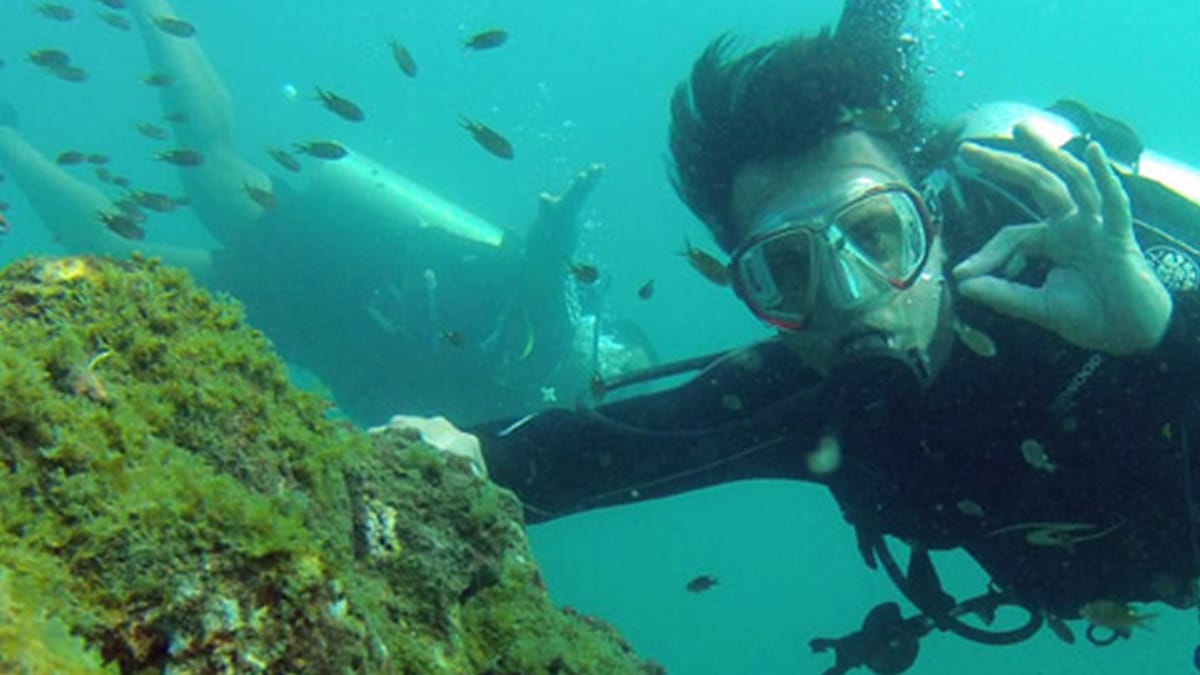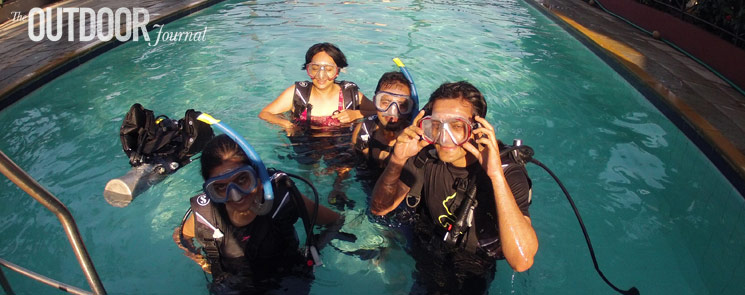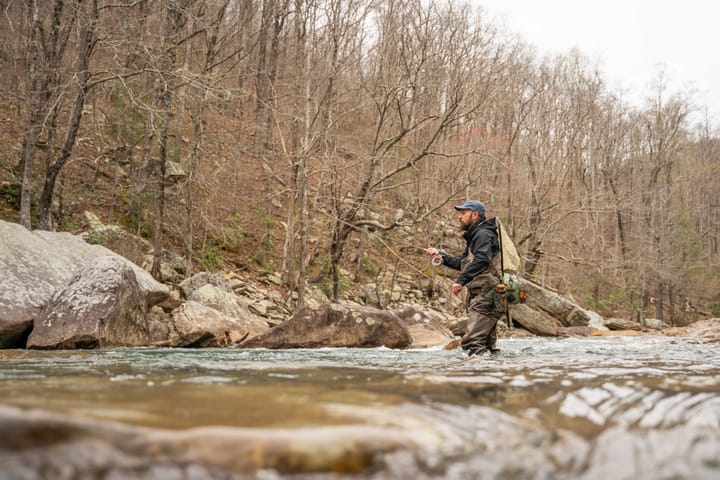An Introduction to Scuba Diving for Beginners
India is fast emerging as a scuba diving destination. But, there's much to prepare before that first dive into the deep blue sea

SCUBA is an acronym for "Self Contained Underwater Breathing Apparatus".

The essential scuba equipment consists of : a cylinder containing compressed breathing air (not oxygen!), a buoyancy control device (BCD) – (a jacket to which the air cylinder is attached), underwater mask, fins and weight belt to help the diver sink.
Pre-requisites before a dive are basic swimming skills, four full days and a towel-- as reminded by the Hitchhiker's Guide to the Galaxy.
A first-time diver has the option of taking part in a one-day program to get a first-hand experience of scuba diving; or actually learning to scuba dive by doing a certified course and getting a card that proves she/he is a diver. Certification bodies include PADI (Professional Association of Dive Instructors) or SSI (Scuba Schools International).
The dive training centers operational in India since 1992 are mostly in Goa, Murdeshwar (in North Karnataka), Pondicherry and the Andaman and Lakshadweep Islands. All these dive centres operate as per international standards laid down by these agencies.
A scuba dive is essentially a passport to the underwater world, the seven-tenth of the blue planet waiting to be explored. A magical realm exploding with colorful life, and adventures for a life time.
"It can be serene, relaxing and intensely challenging at the same time"The one-day discover scuba programme is a quick introduction to this underwater world. A short briefing covers the equipment to be used and underwater breathing. Tips to equalize the pressure in the ears and pool skills is followed by a training dive in the swimming pool to get acquainted with the scuba equipment underwater. Problems that can crop up underwater, like, water entering the mask, removing, replacing and continuing to breathe from the regulator underwater, are solved practically.
After the pool session, it's time for the real thing. The sea! The instructor will help in descent and guide through an underwater tour. All a diver has to do is equalize their ears, breathe calmly, look around and enjoy the experience. For this day, out in the underwater, the charges are Rs. 4000- 4500 (USD 82).
For those looking to be certified divers, the certification courses are priced around Rs. 20,000 (USD 370), depending on the diving spot in India.
Once a certified diver, a day's outing (usually two dives) costs between Rs. 4000 – 5000 (USD 92), with the exotic locations being slightly more expensive. This price includes the rental of all diving gear for the day and boat hire charges.
Image © Ajey PatilPlace: New Delhi





Comments ()